Washington hands Ottawa a gift on NAFTA: Ottawa Power Rankings
Who’s up? A federal minister with a chequebook. Who’s down? A federal minister who’s spending too much.
Share
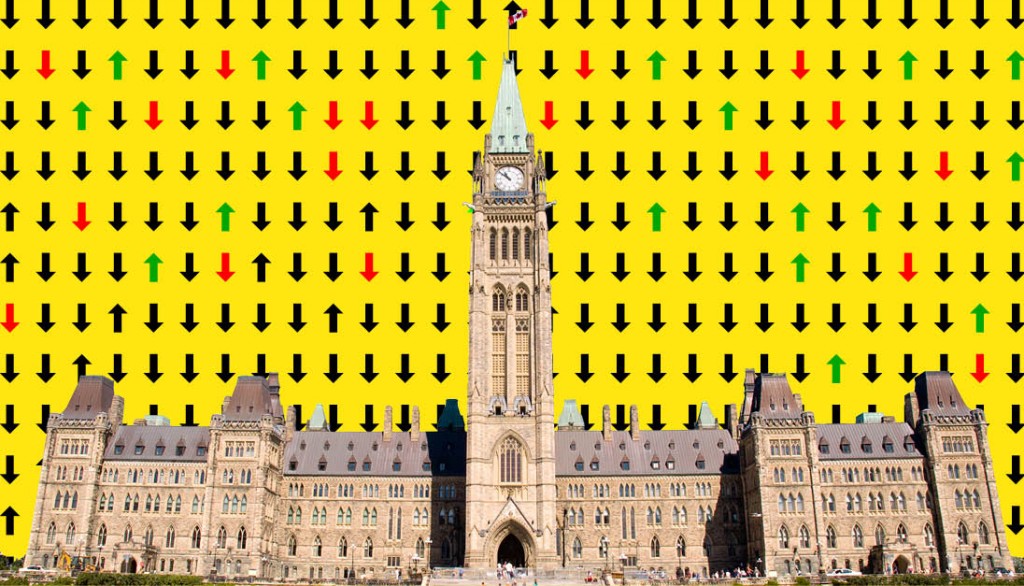
Chrystia Freeland picks up a NAFTA bargaining chip. Mélanie Joly defends an awkward appointment. See who’s up and who’s down in and around Parliament Hill’s corridors of power. And check out the rest of our weekly power rankings.
WHO’S UP:
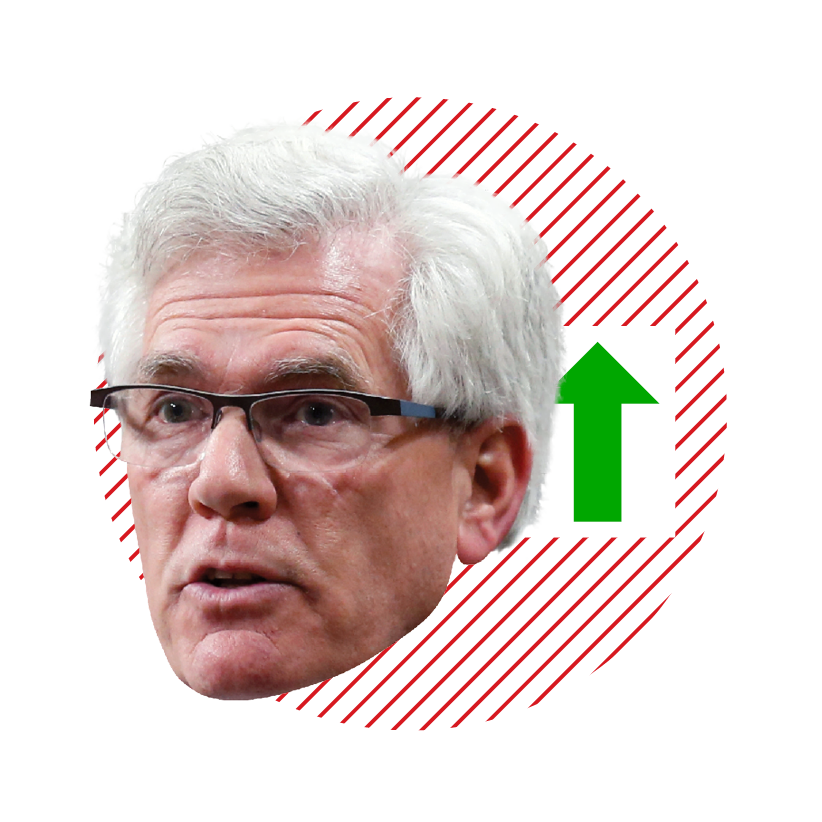 |
JIM CARRAs federal Liberals adjust to the joining of Greens and New Democrats in a bid try governing B.C., Natural Resources Minister Carr has to be among the most uneasy. After all, he is, in effect, Trudeau’s pipelines minister—and the Green-NDP pact stands against the federally approved Trans-Mountain pipeline expansion in B.C. So what better moment than this week for Carr to have something nice to announce, especially for B.C.’s resource sector? And there it was: $867 million to help lumber companies and workers, in the face of U.S. tariffs on Canadian softwood exports. Enjoy the moment, minister, tougher days are ahead. |
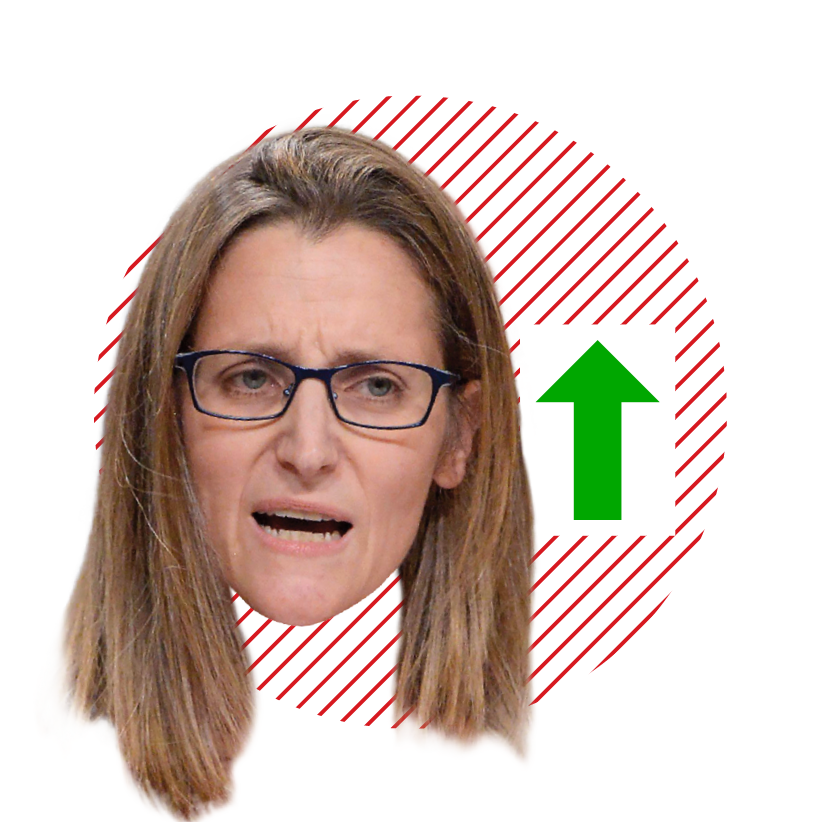 |
CHRYSTIA FREELANDAnd speaking of Canada-U.S trade friction, the uncoordinated, undisciplined, unpredictable machinations of the Trump administration handed a gift this week to Foreign Minister Freeland, who also heads the NAFTA negotiating file. Trump has, of course, railed against Canada for “taking advantage” of America to gain a “massive” trade surplus. But this week, U.S. Commerce Secretary Wilbur Ross took a far more sensible view, saying the U.S. trade deficit with Canada is a “blameless deficit,” based not on Canadian skullduggery, but ordinary reasons like the U.S. needing our energy. A nice bit of analysis for Freeland’s team to be able to quote at the NAFTA table. |
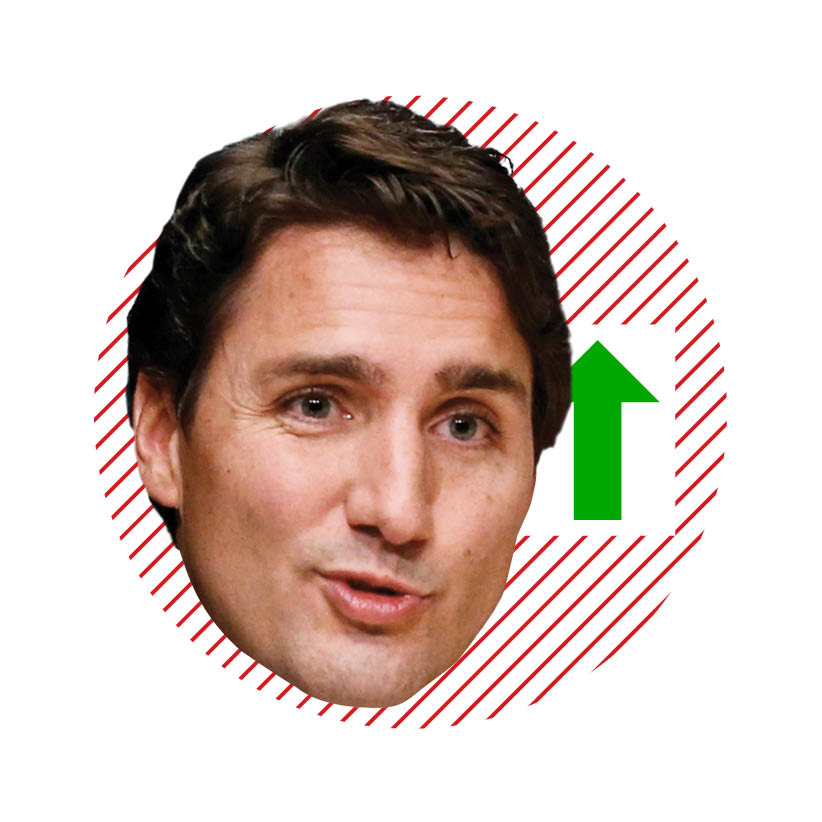 |
JUSTIN TRUDEAUThe conundrums facing the Prime Minister these days often defy brisk, assertive responses. Trump? Trudeau must oppose without risking a damaging rift. Political financing? He must reform the rules enough to respond to bad press, but no so much as to cut off the Liberal party’s cash flow. Trans-Mountain Pipeline? He’s got to be for it, yet stay credible on climate change. But when it comes to Quebec’s premier proposing an ambitious round of constitutional talks (see below), Trudeau knew he had at hand that rare opportunity to be bracingly unequivocal—and he grabbed it. “You know my views,” he declared. “We are not opening the Constitution.” |
WHO’S DOWN:
 |
PHILIPPE COUILLARDLet it be stipulated that there should be no political taboo against raising the prospect of constitutional negotiations. And yet, the sheer futility of doing so in Canada can make the politician who proposes it seem more than a little out of touch. So it was when Quebec Premier Couillard did just that by releasing a hefty document arguing for dialogue along lines not dissimilar to those that led, three decades ago, to the (gulp) Meech Lake Accord. Couillard mused: “Quebec has changed”—true—“Canada has changed”—also true—“and I think we can reopen dialogue”—actually, false. |
 |
MÉLANIE JOLYThe rookie Montreal MP chosen by Trudeau for the plum Canadian Heritage portfolio had been among the unscathed ministers in an increasingly battled-scarred cabinet. But no more. Tasked with defending the controversial selection of Madeleine Meilleur as the new official languages commissioner, Joly was already in tough. Critics argue that Meilleur, a former long-time Ontario Liberal MPP, is too partisan a pick. Then reports revealed that two members of Joly’s staff worked for Meilleur when she was in provincial office. And suddenly Joly appeared to be, at best, an awkward defender of a problematic appointment. |
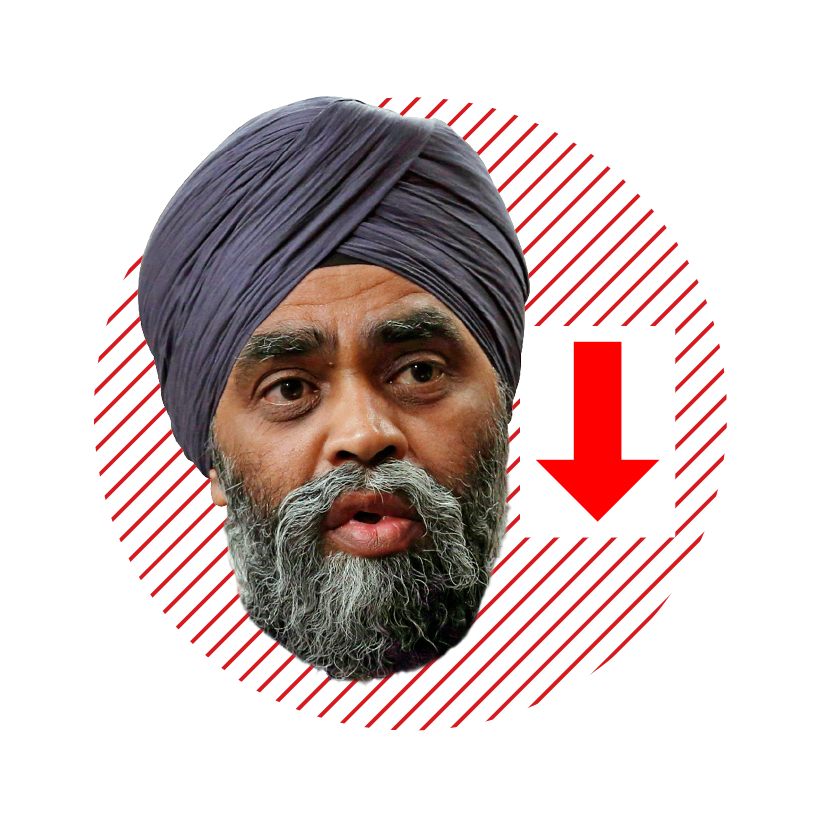 |
HARJIT SAJJANThe defence minister doesn’t seem to be able to catch a break. After having to apologize for embellishing his military record in Afghanistan, Sajjan couldn’t afford any more negative news on the way to his expected releasing next week of a big military policy review’s results. Grim tidings came anyway: the Parliamentary Budget Officer released a report estimating the governments buy of new naval ships will cost more than double what was originally planned—$61.8 billion instead of $26.2 billion. It makes Sajjan’s task of proposing a credible procurement plan, already very hard, that much harder. |